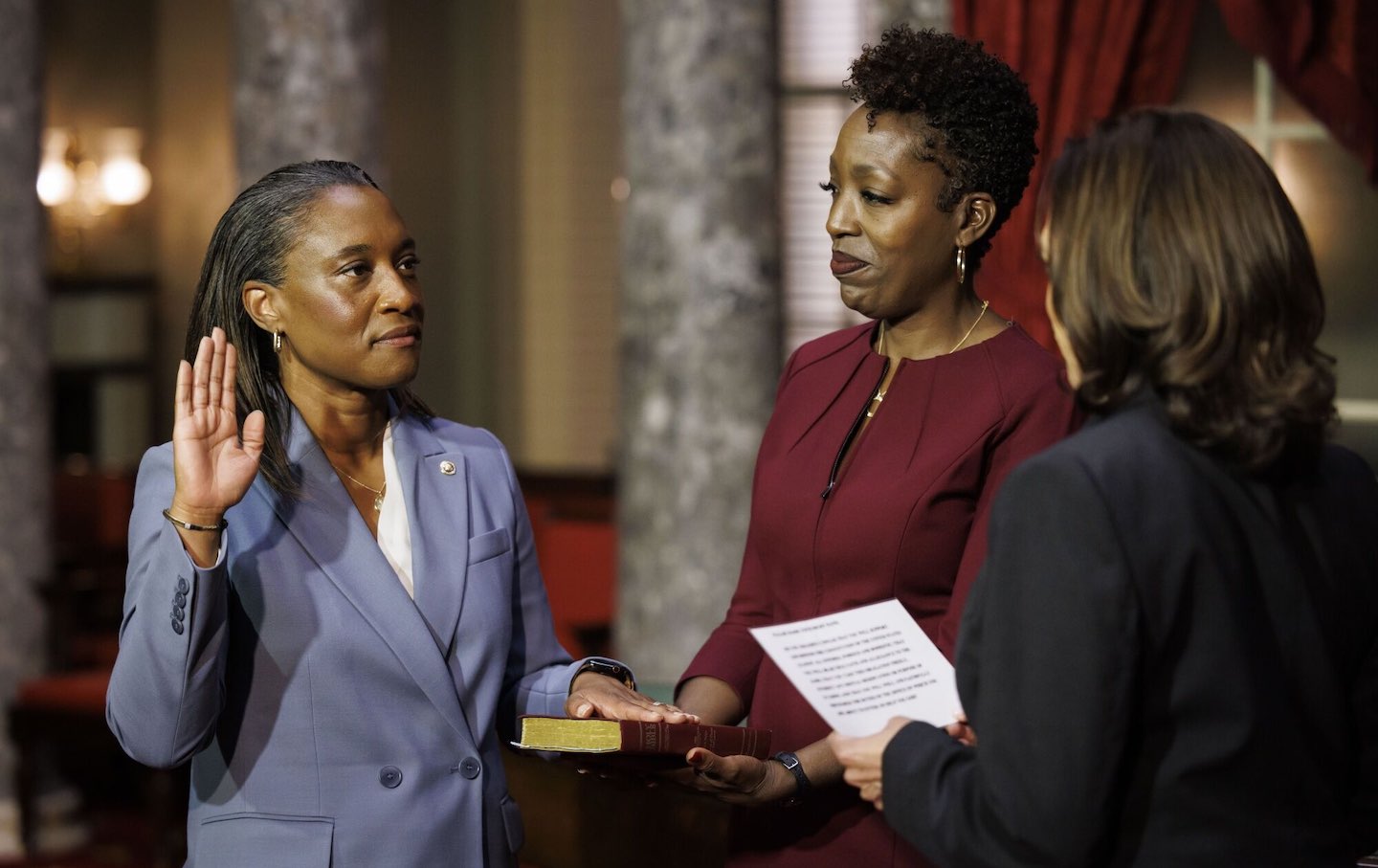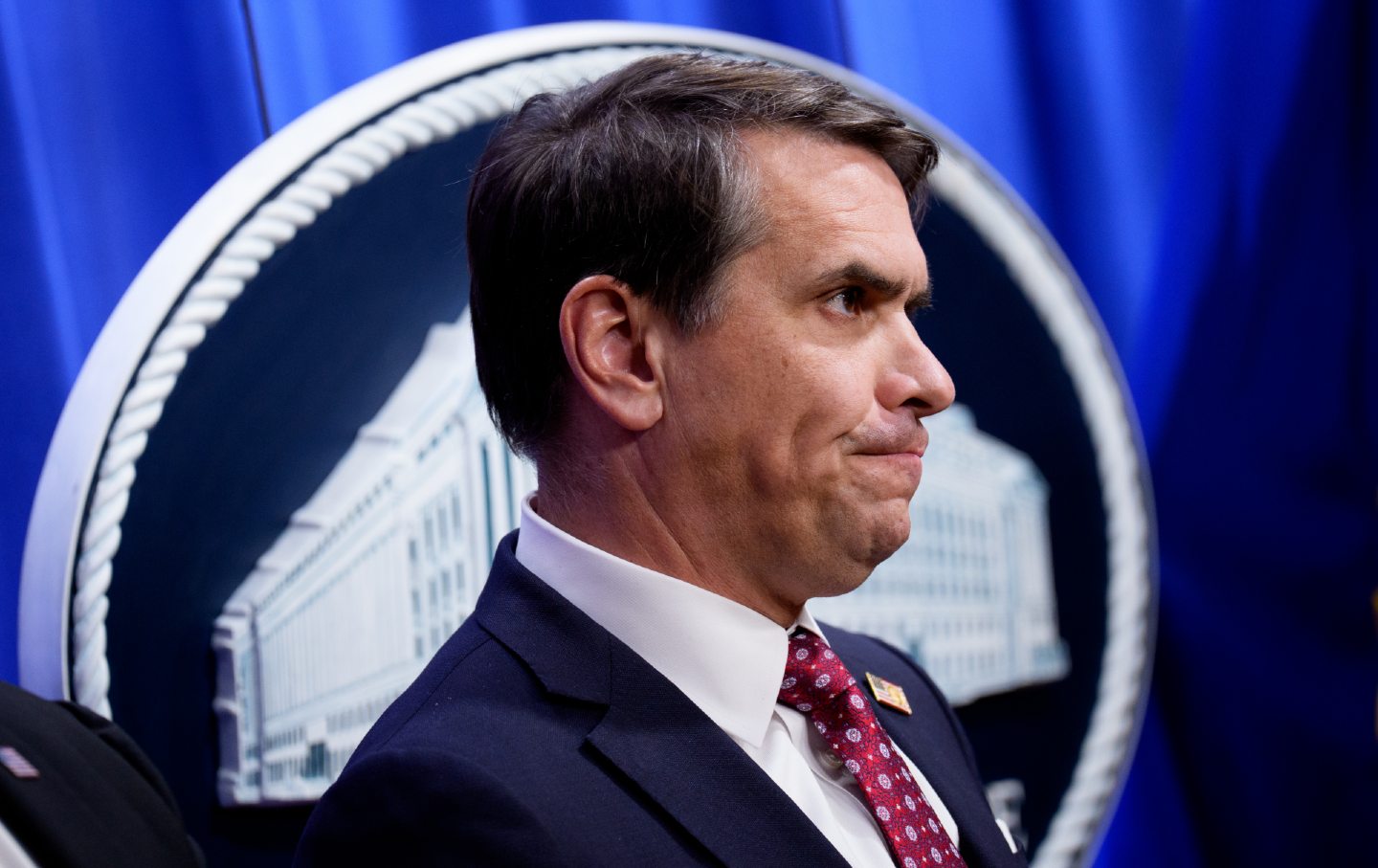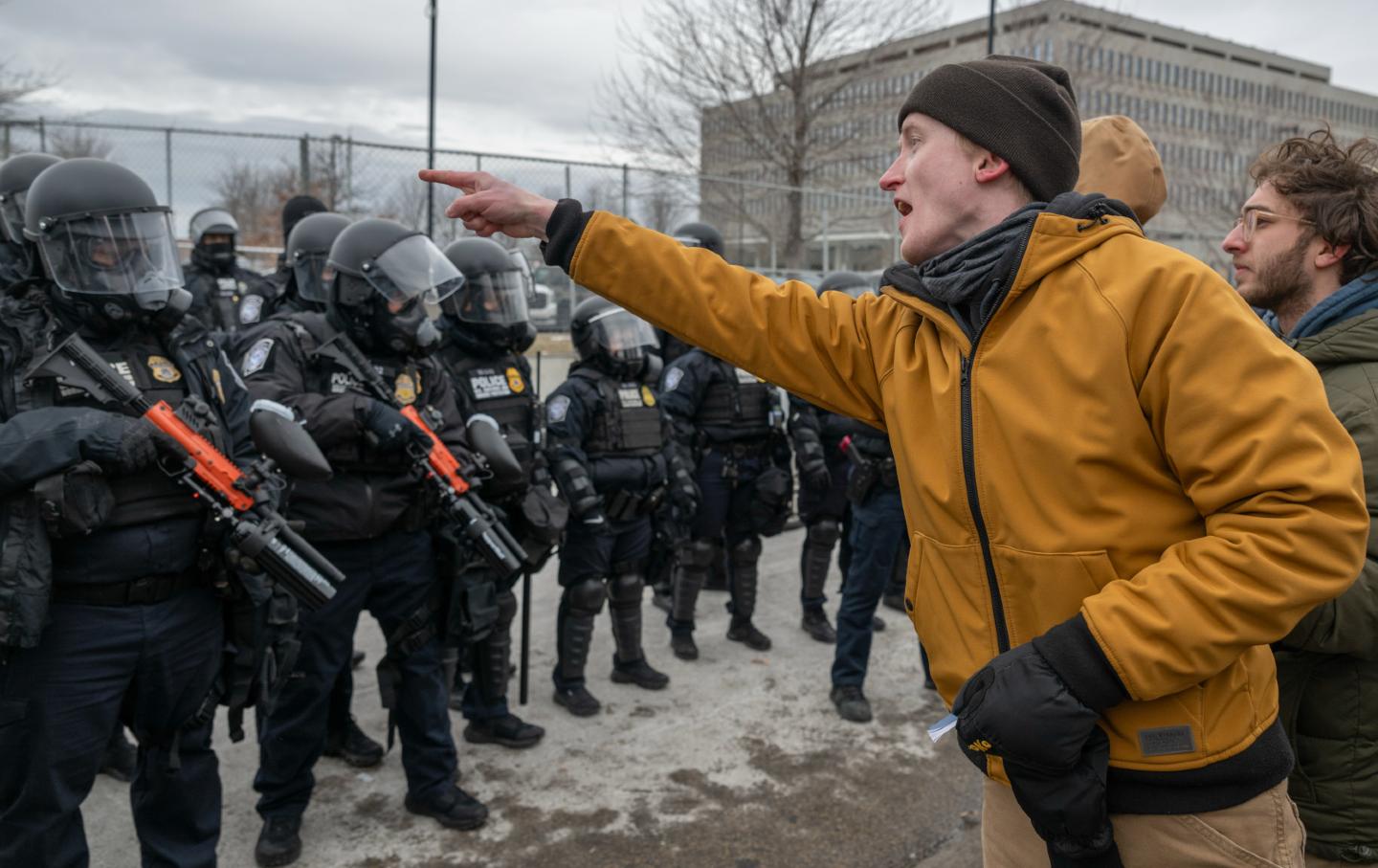Who Is the Real Laphonza Butler?
The new senator from California has been both a union organizer and a corporate consultant. Which side of her will we see in Congress?

Senator-designate Laphonza Butler, a Democrat from California, left, is sworn in by US Vice President Kamala Harris at the US Capitol in Washington, D.C., on Tuesday, October 3, 2023.
(Ting Shen / Bloomberg)It’s been a busy week in politics—not only has the GOP’s House majority cannibalized itself; the death of Dianne Feinstein triggered the rapid appointment of her replacement in the US Senate. California’s newly minted senator, 44-year-old Laphonza Butler, selected for the position by Governor Gavin Newsom, is a progressive, union-organizing activist. And that’s a really good thing. She’s also openly gay and willing to go to bat to protect the rights of the LGBTQ community; that’s also a good thing. On the other hand, she is a consummate political insider who has, in recent years, raised eyebrows on the left with some of the well-remunerated consulting work she’s done for companies such as AirBnB and Uber.
On the activist side: For a decade, Butler headed up the California chapter of the SEIU, Local 2015, which represented 325,000 workers and pushed to organize nurses, home healthcare professionals, and other traditionally nonunionized workers. The local is the largest in the country for homecare, nursing home, and assisted living staff, and has, in the years since Butler left, grown to upwards of 400,000 members. There are now almost as many members of this one local as there are residents of the entire state of Wyoming. It is the largest union in California, and it played a key role in the successful push to get California to pass a $15 per hour minimum wage. Indeed, Butler was the union movement’s chief negotiator around this increase, for which she was, at the time, rightly lauded. Partly as a result of this success, President Obama named Butler a “champion for change.”
The passage of a $15 minimum wage in California set the stage for similar movements around the country, with a significant impact on low-wage workers. By 2021, the National Employment Law Project estimated, 26 million workers had seen their wages increased toward the living wage levels envisioned by the Fight For Fifteen campaign, with $150 billion injected into the economy through these increases. More than half of this money went to low-paid people of color. By any measure, that’s an extraordinary achievement.
More recently, Butler has served as president of Emily’s List, working to defend both abortion access and LGBTQ rights. In the 2022 election cycle, the organization contributed nearly $5 million to an array of political candidates.
Butler’s activism is, however, only one part of her story. She has also been a political consultant for Bearstar Strategies, a Bay Area firm with a who’s who of Democratic clients, including Newsom and Vice President Kamala Harris. In 2020, she was one of Harris’s top advisers during her brief run for the Democratic presidential nomination.
It is in her capacity as a consultant that her record becomes less progressive: Butler moved from working on behalf of the labor movement to working for two companies that have contributed tangibly to growing economic inequality over the past decade. First, she was employed as director of public policy and campaign at AirBnB during a period when the upstart company was transforming—for the worse—the rental market in California and other tourist hot spots. AirBnB’s entry into already tight housing markets led to huge contractions in the amount of affordable housing available, and significant rent increases, in places such as Venice Beach, at a time when homelessness was already spiking. Unions such as Unite HERE! Local 11 have long pushed back against AirBnB, arguing that it both distorts housing markets and undercuts unionized hotel workers.
Subsequently, Butler served as a consultant for Uber during the company’s successful campaign against a California law that would have required gig drivers to be treated as paid employees. In 2020, Uber pushed a ballot initiative, Proposition 22, to ensure that it wouldn’t have to treat their drivers as employers and thus wouldn’t have to provide them with benefits. The campaign was staggeringly expensive: Between them, Uber, Lyft, Doordash, and other denizens of the gig economy threw in a staggering $200 million to influence public opinion on the issue. It worked. Voters passed the proposition, the courts upheld the constitutionality of most of its provisions, and drivers continue to be treated as non-benefited freelancers.
Not surprisingly, given this recent history, some labor activists were unimpressed by Newsom’s choice. It shouldn’t have been a surprise, though: Newsom himself has a sometimes contentious relationship with organized labor—witness his decision, this week, to veto a bill that would have extended unemployment benefits to striking workers, and his veto of another bill dear to labor’s heart, one that would have imposed strict limits on driverless trucks. And for Newsom, whatever downsides there were to this appointment were more than outweighed by a simple political calculus: For the second time in three years, the governor has found himself in the position of appointing a US senator, and this time around he was limited by a promise he had made, in 2021, to appoint an African American woman should Diane Feinstein’s Senate seat open up. The obvious candidate, Representative Barbara Lee—one of three Congress members to have already entered the primary contest for the open Senate seat—is far to the left of the party’s center and faced strong opposition from Nancy Pelosi. And other African American women leaders in California, from Los Angeles Mayor Karen Bass to San Francisco Mayor London Breed, had let it be known they weren’t interested. Butler was interested in the job, and she was also someone eminently qualified to hit the ground running on day one.
Originally Newsom had said he would only appoint a “caretaker” senator, someone who wouldn’t add their hat to a primary ring already populated by three members of Congress—Katie Porter, Adam Schiff, and Barbara Lee. In the end, however, he did not insist that Butler agree to this condition. It is, therefore, entirely likely that at some point in the next two months, the newly appointed Senator Butler will declare her candidacy, scrambling the calculus as to who will be elected, in November 2024, to serve a full term as Feinstein’s replacement.
If Butler does enter the fray, though, she will have to decide whether to run as the radical candidate who fought for and won the $15 minimum wage or as the centrist consultant who set qualms aside and helped Uber maintain its anti-worker business practices.








